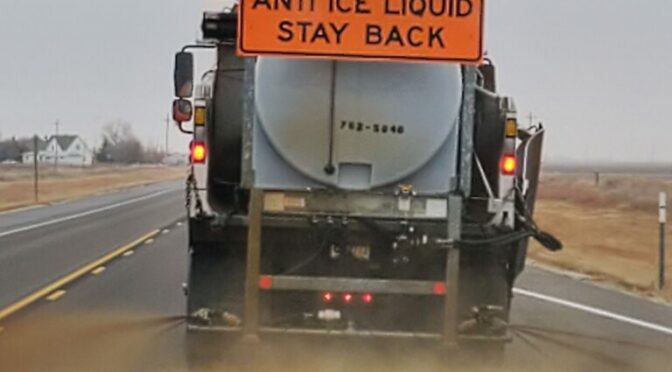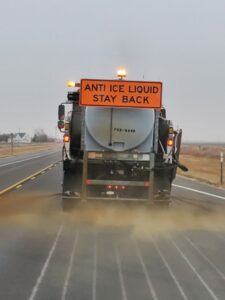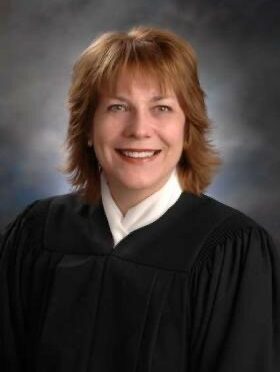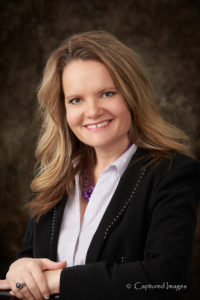Governor Kelly’s first year rebuilding Kansas
With 2019 drawing to a close, Governor Laura Kelly reflected on her administration’s accomplishments during her first year in office and addressed the work still to be done to keep Kansas on the path to prosperity.
“When I took office in January, I made a promise to the people of Kansas that I would do everything I could to rebuild our state and improve their quality of life,” Kelly said. “That promise has guided me over the course of the past year, and today I am pleased to say we have instituted bipartisan, meaningful change in 2019 that will help strengthen families across Kansas.
“Our state is on the road to recovery. This summer, CNBC described Kansas as ‘the comeback state of 2019,’ improving our standing in their annual rankings of top states for business by 16 spots – the largest jump of any other state.
While the Governor has made meaningful progress in restoring fiscally responsible budget practices, she knows that she must keep fighting for and investing in key priorities such as Kansas’ schools and infrastructure.
“I’m proud of this, and all we have accomplished,” Kelly said. “But we still have so much to do. I promise to continue to work hard every day for every Kansan.”
Among the successes of Governor Kelly’s administration in 2019:
Education
From day one, Kelly ran on the promise of restoring school funding and becoming the “Education Governor.” Kelly highlighted the importance of investing in the school system to build a future workforce pipeline and a brighter future for all Kansans.
On April 6, Kelly signed a bipartisan school funding bill that the Kansas Supreme Court ruled adequately funded Kansas schools. In a true victory for Kansas families, the ruling finally ended many years of costly litigation over school finance and put K-12 public schools on a stronger foundation for success.
Kelly also established the Governor’s Council on Education, which is made up of stakeholders in education, child welfare, labor, advocacy and business communities across Kansas. The Council has already issued initial recommendations designed to improve education outcomes from early childhood through postsecondary attainment; enhance workforce development; and stimulate economic growth in Kansas.
Kelly also increased funding for higher education and challenged Kansas’ Regents universities to ensure that the funding would protect Kansas college students from a tuition hike for the first time in years.
Labor
Current labor market data, for November 2019, shows Kansas maintained record low unemployment, marking its lowest rate in 40 years at 3.1%. Since November of 2018, Kansas has gained 16,800 non-farm jobs and 11,800 private-sector jobs. November estimates also indicate strong wage growth in the private sector.
Fiscal Responsibility
During her first weeks in office, Kelly submitted a balanced budget to the Kansas Legislature nearly three weeks ahead of schedule. The budget paid down debt, invested in key priorities like schools, highways and health care, and provided the state with the largest ending balance in a decade — all without a tax increase, as promised.
In September, Kelly established the bipartisan Governor’s Council on Tax Reform. The Council is performing an in-depth study of the state’s current tax system. In December, the Council produced a number of recommendations for a fair and sustainable tax structure.
In calling for a return to the balanced, three-legged stool approach to taxes – income, property and sales — it recommended a food sales tax rebate and return to a tax-reduction fund that would give local governments more ability to lower property taxes. Decreasing the burden placed on Kansas families by the food sales tax has always been one of the Governor’s top priorities from the first day of her campaign.
In addition to balancing the budget, Kelly’s administration began the process of thoroughly reviewing the state’s “no-bid” contracts. The practice of “no-bid” contracts bypassed the official state bidding process designed to ensure that contracts are transparent and in the best interests of Kansans. New measures of transparency, accountability and fairness have been established within the state procurement process. Kelly has taken exhaustive steps to ensure that Kansas taxpayer dollars go toward the most qualified bidder.
Child Welfare
One of Kelly’s top priorities after taking office was taking steps to rebuild Kansas’ broken foster-care system.
She first appointed a nationally renowned leader to guide the Department for Children and Families. In January, Secretary Laura Howard took the lead at DCF and immediately improved transparency within the agency and efforts to locate children who were absent or had run away. Secretary Howard made meaningful progress by also hiring dozens of new social workers needed to improve response times and handle the existing caseload.
Kelly also signed a bill allowing Kansas to leverage millions of federal dollars to benefit programs that strengthen vulnerable children and families. The bill enables Kansas to meet the requirements of the federal Family First Prevention Services Act program, which uses funds to give Kansas families access to strong, evidence-based programs – from mental health services to substance use disorder treatment – designed to prevent the need for foster care.
Transportation
Kelly reduced more than $160 million in sales tax transfers from the “Bank of KDOT,” the money from the state’s transportation program. Over the past several years, more than $2 billion from this fund was used by the Legislature to pay for programs unrelated to transportation. By working toward closing the “Bank of KDOT,” the state can finally use Kansas’ infrastructure dollars to begin rebuilding deteriorated highways, complete five delayed T-WORKS projects, address critical safety needs, reinstate the local bridge repair program and create a partnership program for communities to address their infrastructure problems.
The Governor has directed KDOT to develop a new long-term transportation plan for the state. After meeting with more than 2,000 Kansans, the proposed new FORWARD transportation plan calls for completing all T-WORKS projects, fully funding highway preservation, modernizing all modes of transportation, and providing economic development opportunities across the state.
Health Care
Kelly has made it clear that her top priority in 2020 will be expanding KanCare, the state’s Medicaid program, so that 150,000 more Kansans will have access to affordable, quality health care.
As part of Kelly’s commitment to ensuring 2020 will finally be the year we bring expansion over the finish line, Kelly established the bipartisan Governor’s Council on Medicaid Expansion.
“The group studied what worked elsewhere to help determine the best path for Kansas,” Kelly said. “The Council will submit a final report to me in early January outlining several guideposts for responsible expansion in Kansas. I call on the Legislature to carefully consider these guideposts next session as a way to pass a clean, effective bill to help the many Kansans who currently don’t have enough coverage.”
Economic Development
Kelly, in conjunction with Secretary of Commerce David Toland, established the Kansas “Framework for Growth” – a comprehensive strategy for economic growth in the state. A team of stakeholders, business leaders and economic development professionals from across the state will implement three phases: assessment and benchmarking; recommendations and best practices; and implementation planning. Key priorities of the Framework for Growth include business and workforce development, industry promotion and job creation.
The Department of Commerce also re-launched the Main Street program, which is critical to the growth and revitalization of our rural communities. Prior to 2012, when Main Street was discontinued, the program had a 27-year history of building stronger communities and strengthening businesses by preserving historic commercial districts around the state.
Rural Prosperity
Kelly appointed Lieutenant Governor Lynn Rogers to lead the newly-established Office of Rural Prosperity, which will develop statewide policies and initiatives for improving life in rural communities that have been neglected for far too long.
This summer, Rogers visited 54 Kansas counties on his Office of Rural Prosperity listening tour. On the tour, he learned that key needs in rural communities include developing rural housing, investing in infrastructure and supporting hospitals.
Kelly, along with Lt. Governor Rogers, urged Kansas’ congressional delegation to support the pending United States-Mexico-Canada Agreement (USMCA), due to its importance to Kansas trade and exports – and the state’s economy.
Additionally, the Kansas Department of Agriculture recently unveiled a new website to assist Kansas farmers and ranchers who are dealing with ag-related stress. The website contains resources and support to assist Kansas farmers, including help with stress management, financial and legal challenges and mental health services.
State Employees and Cabinet
This year, Kelly increased pay for state workers by 2.5%, without a tax increase. And after years of health insurance premium hikes, this year Kelly’s administration was able to decrease costs by 6% for families and spouses.
In addition, one of Kelly’s first priorities was to appoint a highly-qualified, bipartisan Cabinet focused on rebuilding state agencies that had been hollowed out over the course of the past several years.
The Cabinet has taken great strides to serve more Kansans and restore transparency and accountability in state government.
Corrections
When Kelly took office in January, the state’s corrections system was in dire straits due to overcrowding and other problems. To address the crisis in state prisons and enhance public safety, Kelly increased pay for corrections workers by 15.9%.
She also appointed several members to the new, bipartisan Kansas Criminal Justice Reform Commission, which will address systemic problems in our criminal justice system and make suggestions for change that should help ease prison crowding and reduce recidivism rates.
Inclusion and Equality
On her first day in office, Kelly signed Executive Order 19-02, reinstating protections to state employees who are gay, lesbian, bisexual or transgender.
She also agreed to a court order allowing transgender Kansans to update the gender listed on their birth certificate, so it accurately reflects their identity.
When Kelly took office, the state boards and commissions to which the governor makes appointments were composed of 37% women and 63% men. Now, due to Governor Kelly’s appointments and her commitment to gender parity throughout Kansas, state boards and commissions are composed of 51% women and 49% men.
2020 Priorities
“There is still so much to do,” Kelly said. “I will continue traveling across the state to hear from Kansans about what is working in their communities – and what is not. Hearing from Kansans directly is how I’ve always operated. It’s the only way to get things done, and get things done right.”
“I am proud of what we accomplished, and I look forward to continuing this hard work next year.”





